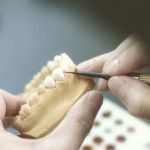Essential Components of Oral Health Education in Dental Assistant Training
- 1. Why Oral Health Education is Critical in Dental Assistant Training
- 2. Key Topics Covered in Dental Assistant Oral Health Education
- 3. Real-Life Examples: How Oral Health Education Impacts Dental Assistants
- 4. The Connection Between Oral Health Education and Quality Patient Care
- 5. Enhancing Career Opportunities through Oral Health Education







 Dr. Sam Saleh4.0 (37 review)
Dr. Sam Saleh4.0 (37 review) Cooley Smiles Everett4.0 (795 review)
Cooley Smiles Everett4.0 (795 review) Gulf Coast Advanced Dentistry4.0 (317 review)
Gulf Coast Advanced Dentistry4.0 (317 review) Dentist Of Wyckoff NJ0.0 (0 review)
Dentist Of Wyckoff NJ0.0 (0 review) Midjersey Family Dentistry4.0 (86 review)
Midjersey Family Dentistry4.0 (86 review) West Nyack Dental2.0 (85 review)
West Nyack Dental2.0 (85 review) The Importance of Oral Health Education During Pregnancy for a Healthy Pregnancy
The Importance of Oral Health Education During Pregnancy for a Healthy Pregnancy Best Tips for Brushing Your Teeth Properly for Healthy Gums: Essential Techniques for Oral Health
Best Tips for Brushing Your Teeth Properly for Healthy Gums: Essential Techniques for Oral Health Why Skipping Dental Checkups Can Lead to Bigger Oral Health Problems
Why Skipping Dental Checkups Can Lead to Bigger Oral Health Problems Advantages of Porcelain Dental Restorations
Advantages of Porcelain Dental Restorations How Can Diabetes Cause Tooth and Gum Problems? Preventing and Managing Oral Health Issues
How Can Diabetes Cause Tooth and Gum Problems? Preventing and Managing Oral Health Issues Healthy Habits for Promoting Good Oral Health and Hygiene: Tips for a Healthy Smile
Healthy Habits for Promoting Good Oral Health and Hygiene: Tips for a Healthy Smile